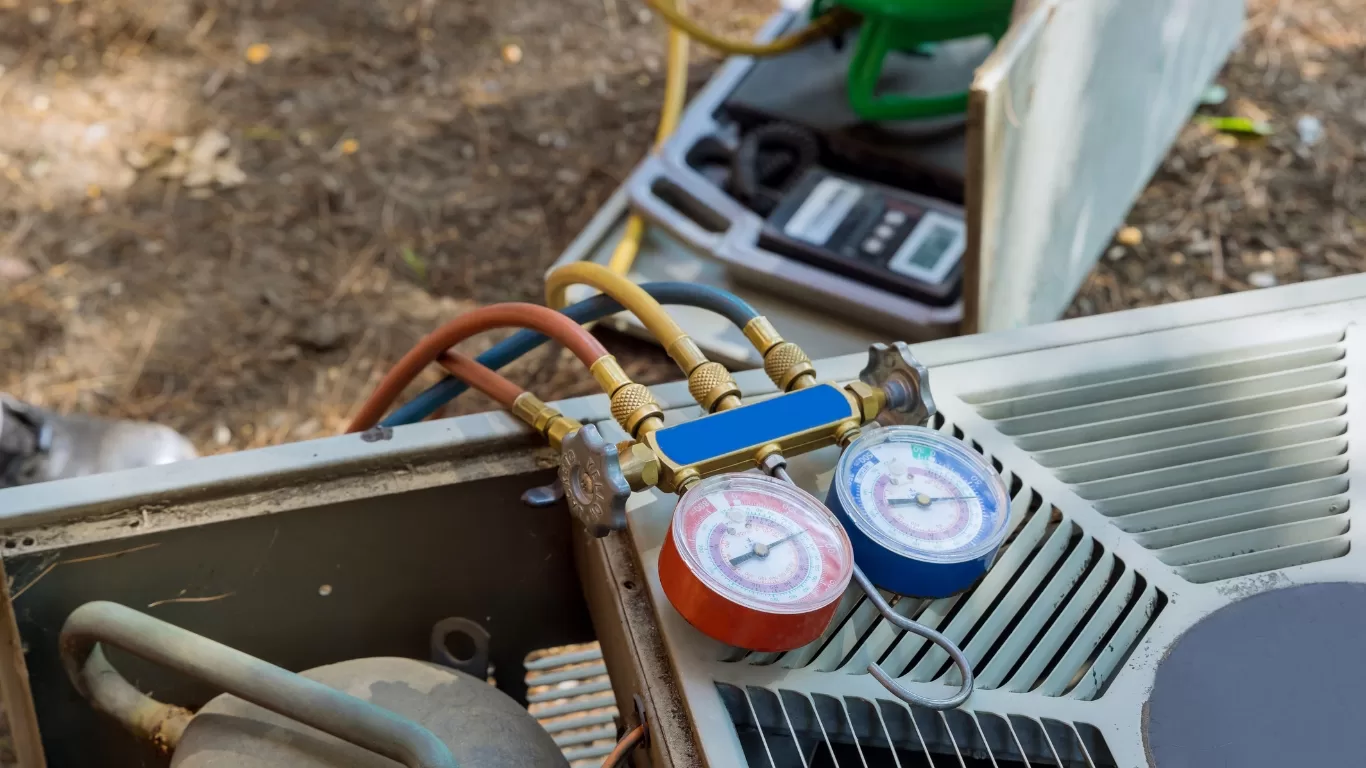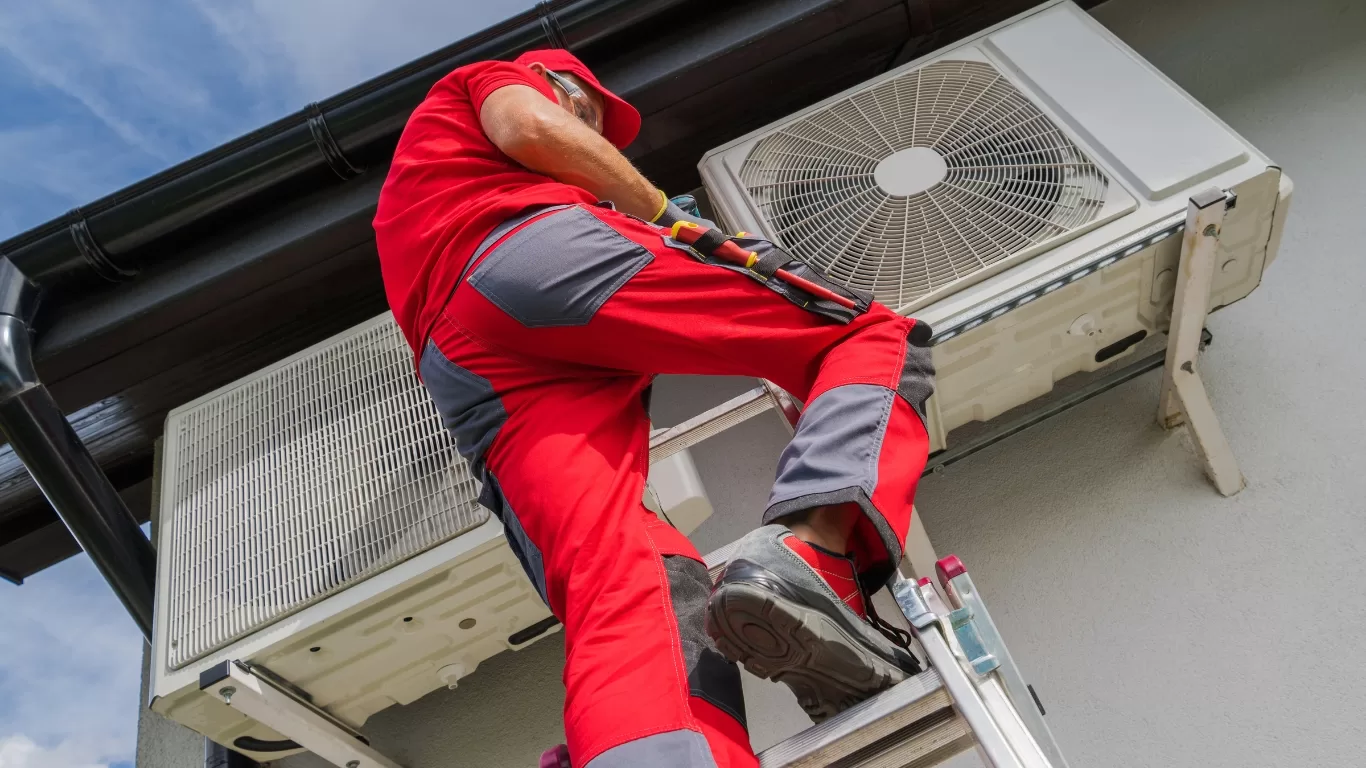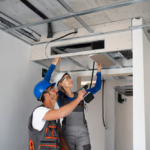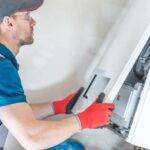What is an energy-efficient AC unit?
An energy-efficient AC unit is designed to consume less energy while providing the same level of cooling as a standard unit. This means it can help you save money on your electricity bills and reduce your environmental impact. Energy-efficient units often come with a higher Seasonal Energy Efficiency Ratio (SEER) rating, indicating their ability to operate efficiently over a range of temperatures. They also utilize advanced technologies such as variable-speed compressors and smart thermostats to optimize energy usage. By investing in an energy-efficient AC unit, you can enjoy comfortable indoor temperatures while minimizing your carbon footprint and lowering your utility expenses.

Advantages of an energy-efficient AC unit
An energy-efficient AC unit can save you money on your electricity bills and reduce your environmental impact. According to the U.S. Department of Energy, energy-efficient air conditioners use 20%-50% less energy than standard models, which translates to lower utility costs. In addition to the financial benefits, these units also help to reduce greenhouse gas emissions, making them a more environmentally friendly choice. Energy-efficient AC units also tend to provide better comfort, as they can cool your home more effectively while using less energy.
Understanding the energy efficiency rating
The energy efficiency rating of your AC unit is important for how much energy it uses and the cost to run it. The rating is measured by the SEER value, which stands for Seasonal Energy Efficiency Ratio. The higher the SEER value, the more efficient the unit is. Newer models typically have a SEER value of 14 to 25, while older models may be as low as 8. Units with higher SEER values are more costly upfront but can save you money in the long run through lower energy bills.
Factors affecting the energy efficiency of an AC unit
To improve the energy efficiency of your AC unit, consider these factors:
- Size of the AC Unit: Ensure that the AC unit is appropriately sized for your space. An undersized unit will work harder to cool the area, while an oversized unit may result in frequent cycling on and off, both of which can affect energy efficiency.
- SEER Rating: The Seasonal Energy Efficiency Ratio (SEER) of the AC unit determines its energy efficiency. Higher SEER ratings indicate higher energy efficiency. Look for units with higher SEER ratings to save on energy costs.
- Insulation and Home Sealing: Good insulation and sealing in your home can reduce the workload on your AC unit, improving energy efficiency. Properly insulated windows and doors, along with well-sealed ductwork, can make a difference.
- Regular Maintenance: Keeping your AC unit well-maintained with regular cleaning and servicing can ensure that it operates at optimal energy efficiency levels.
- Thermostat Settings: Setting the thermostat to a reasonable temperature and using programmable or smart thermostats can help optimize energy usage.
Consider these factors to maximize the energy efficiency of your AC unit and save on energy costs over time.
Tips for improving the energy efficiency of your AC unit
To improve the energy efficiency of your AC unit, you can consider the following tips:
- Regular Maintenance: Schedule annual maintenance for your AC unit to ensure it runs efficiently.
- Proper Insulation: Insulate your home to prevent cool air from escaping, reducing the workload on your AC unit.
- Smart Thermostat: Invest in a smart thermostat that can adjust the temperature based on your schedule, saving energy when you’re not at home.
- Air Filter Replacement: Regularly replace the air filters to ensure proper airflow and efficient operation.
- Sealing Air Leaks: Seal any air leaks in your home to prevent cool air from escaping and hot air from entering, making your AC work harder.
- Shade Outdoor unit: Provide shade to the outdoor unit of your AC to prevent it from being overworked by direct sunlight.
Importance of regular maintenance
Regular maintenance of your AC unit is crucial for ensuring its energy efficiency. By regularly cleaning or replacing the air filters, checking and cleaning the coils, and ensuring the proper lubrication of all moving parts, you can help your AC unit run smoothly and efficiently. Regular maintenance can also prolong the lifespan of your AC unit and help prevent costly repairs. It’s recommended to have your AC unit checked and serviced at least once a year by a professional technician to keep it running at its optimal energy efficiency.
Upgrading to an energy-efficient AC unit
Upgrading to an energy-efficient AC unit can help reduce your energy bills and lessen your environmental impact. Energy-efficient units use less electricity to cool your home, which can result in significant savings over time. According to the Department of Energy, newer models of AC units are built with advanced technology that consume 30% to 50% less energy compared to older models. Choosing a unit with a high Energy Efficiency Ratio (EER) and Seasonal Energy Efficiency Ratio (SEER) can ensure optimal performance and cost savings. Additionally, some energy-efficient units may qualify for rebates or tax credits, further increasing your potential savings.
Cost considerations and potential savings
Upgrading to a more energy-efficient AC unit can lead to significant long-term savings on your energy bills. Although the initial cost of a high-efficiency unit is higher, the potential savings on your energy expenses can make up for it over time. In addition, some utility companies offer rebates or incentives for purchasing energy-efficient appliances, which can further offset the initial investment. National studies have shown that homeowners can save an average of 20 to 40 percent on their cooling energy costs by switching to a more efficient AC unit. Factors such as the size of your home, climate, and usage patterns will also influence your potential savings. If your current AC unit is more than 10 years old, upgrading to a newer, more energy-efficient model can be a smart financial decision in the long run.
Environmental impact of energy-efficient AC units
Energy-efficient AC units have a lower environmental impact compared to traditional units. They consume less energy, leading to reduced greenhouse gas emissions and overall energy consumption. Additionally, they help in preserving natural resources and reducing the strain on the electrical grid. Energy-efficient units are designed to operate with minimal energy wastage, making them a better choice for environmentally conscious individuals.
Conclusion and summary
In conclusion, understanding the energy efficiency of your AC unit is crucial for saving on energy costs and reducing your environmental impact. Regular maintenance, proper insulation, and choosing the right size and type of AC unit are key factors in achieving energy efficiency. Additionally, utilizing programmable thermostats and upgrading to newer, more efficient models can further enhance your AC unit’s energy efficiency. By making informed choices and taking proactive measures, you can maximize the performance of your AC unit while minimizing its energy consumption.




